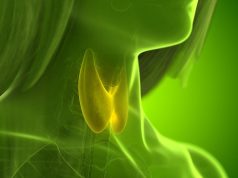Increase in PM2.5 linked to increase in all-cause OHCA on same day, at lags of up to three days
FRIDAY, Feb. 14, 2020 (HealthDay News) — Short-term exposure to fine particulate matter (PM2.5) is associated with an increased risk for out-of-hospital cardiac arrest (OHCA), according to a study published in the January issue of The Lancet Planetary Health.
Bing Zhao, M.D., from the University of Tasmania in Hobart, and colleagues examined the associations between exposure to ambient air pollution and incidence of OHCA. Population-based registry data for OHCA in Japan from Jan. 1, 2014, to Dec. 31, 2015, were linked to daily PM2.5, carbon monoxide, nitrogen dioxide, photochemical oxidants, and sulphur dioxide exposure on the day of arrest or one to three days before.
The researchers identified 249,372 OHCAs, of which 60.1 percent were presumed to be of cardiac origin. An increase in PM2.5 of 10 µg/m³ was associated with an increased risk for all-cause OHCA on the same day (odds ratio, 1.1016) and at lags of up to three days (odds ratios ranging from 1.015 to 1.033). For cardiac OHCA, the results were similar (odds ratios ranging from 1.016 to 1.034). Compared with younger age groups, patients aged older than 65 years were more susceptible to PM2.5. There were also positive associations with OHCA for carbon monoxide, photochemical oxidants, and sulphur dioxide, but not for nitrogen dioxide.
“The finding of adverse effects when air pollutant levels are below established air quality standards raises the urgent need to reassess current standards and improve air quality,” the authors write.
Copyright © 2020 HealthDay. All rights reserved.








